What to Know As A Renter
When you begin renting a new residence, there are various things to keep in mind, in order for your commitment to run smoothly. Whether you are renting an apartment or a condominium, moving into a new place is typically an exciting, new experience for most. Keep in mind, moving into a new place requires you to be on top of paying rent, and paying rent should always be your number one financial priority. Maintaining a safe, clean living environment will drastically decrease the chances of a personal injury accident, and owner’s liability lawsuits. Before moving into a new place, ensure that you have the financial resources and capability to pay rent. Experts say rent should take up less than 30 percent of your income. In most states, there is no grace period to pay rent. Landlords who rarely allow a grace period will document this on your lease. Landlords sometimes charge “reasonable” fees, if you pay your rent late. The following tips are vital for what you should know as a renter.
Tip 1: Make a good impression on your landlord
Establishing a solid professional relationship between you and your future landlord is vital to successfully renting and moving into a new place. When meeting with your landlord at first, bring all of the paperwork you may need with you. Your landlord will run a credit check, typically charging anywhere from $10 to $50. Always get a receipt for any fees, deposits, or rent you pay. It is important to remember that depending on the current housing market, you may need to move rapidly and efficiently, to have all of the proper paperwork filed on time.
Tip 2: Securing the apartment
A lease is a legally binding document, so it is essential to value the importance of this agreement, and long-term commitment. Before signing any paperwork, be sure you understand all terms entirely, and ask questions whenever necessary. A lawyer will be beneficial to work with during this part of the process. Some landlords or home associations require that you pay certain fees, including security, pet, and utilities. Due to these additional, one-time fees, your first month of rent is likely to be more expensive than other months. If you do not damage the property, and abide the rules determined on the lease, you should receive all of these one-time deposits back. If you have roommates, ensure they sign a co-tenancy agreement. Writing down each person’s liabilities can prevent legal problems that may arise in the future.
Tip 3: Inspect before moving in
When moving in to your new place, walk around and conduct an inspection. Be sure to check any scratched surfaces, broken door knobs, or anything that is detrimental to the functioning of appliances. Write down all complaint’s on a renter’s inspection worksheet, enabling you to contact your landlord and get all problems fixed immediately. It is your right to live in a safe, healthy environment, and this is the most significant tip for avoiding personal injury and owner’s liability lawsuits. It is both you and your landlord’s duty to maintain responsibilities for the apartment.
Always write complaints and necessary repairs down, in order to protect yourself in the future. It is your landlord’s responsibility to respond and fix damages within an appropriate amount of time. Writing this information down enables you to keep documentation for your records, and will help you legally if your landlord has not helped you with essential repairs for a safe living environment. Never allow a health hazard, community concern, or structural defect to sit.
Moving into a new place is a novel, exciting life event for most people. Whether it is your first time renting, or if you have rented before, there are proper guidelines to ensure a smooth transition into your new home. When looking at a new place, make a good impression on your landlord by bringing proper documentation, and paying your landlord to run a credit check. Secure the apartment by signing a lease, remembering how this commitment is long-term, and ask any questions you may have to your landlord or attorney. Upon moving in to the new place, inspect your surroundings and document any necessary repairs. It is both you and your landlord’s duty to maintain a safe, healthy living environment. Throughout the process, ask for copies of all documentation, and carefully read every paper you sign. If your landlord is failing to repair necessary damages, or you want to file an owner’s liability claim, contact a personal injury attorney to discuss the potential compensation you may be entitled to.
If you or someone you know has been injured in a car crash or truck accident and are in need of an accident attorney in Miami, Fort Lauderdale, West Palm Beach, Naples, Ocala, Orlando, Tampa, Gainesville, Jacksonville, Tallahassee, Ft. Myers or any other city in Florida –remember after 911, call 411! 1-800-411-PAIN can put you in touch with an experienced, aggressive network attorney who will fight for your rights and get the maximum compensation you deserve. Don’t forget to follow 411 PAIN on Twitter (@411PAIN), keep up with the conversation at #411PAIN and check out the 411 PAIN event gallery 411painevents.com!


